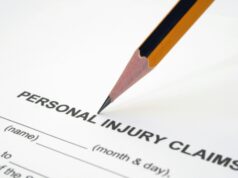
False arrest and imprisonment are a legal violation of civil rights and require providing compensation to the victim. A small percentage of individuals in the prison system in the US is found to be innocent.
Definition of False Imprisonment

Any intentional restraint of a person in the form of physical barriers or denial of liberty to move freely that is against their will and without any legal or reasonable justification is false imprisonment. The US judicial system deems the use of force that is unjust as false imprisonment if it has led to intentional confinement of the individual. If such force is used to retrain the victim then there can be strong penalties.
According to several important forms of evidence proving false imprisonment as provided by the civil rights attorneys at Friedman Levy in New York City, they are required to demonstrate that there is a lack of legal justification, and the other party restricted their movements. If you have been denied the liberty to move freely, or if you fear that if you try to move out you would be harmed then the civil rights have been violated.
What Constitutes a False Imprisonment?

Unlawful detention conducted without the consent of the victim constitutes false imprisonment. Other instances that classify as false imprisonment include:
- If your employer prevents you from leaving work by locking doors
- If something you value has been held unlawfully without your consent to prevent you from leaving.
- If a caregiver is restricting the movement of patients by drugging them against their will
- If physical force was applied to a person to keep them from leaving
- If you have been detained for an unreasonably long period based on your attire or looks
Some examples of false imprisonment are armed robbery where you are threatened to be shot if you leave. In such cases, you think that you may suffer injuries or get killed if you move, so you are being unlawfully held against your will. Also, if you have been falsely arrested and taken into custody by someone without any legal authority, you are falsely imprisoned.
It is important to understand that not all situations may be a case of unlawful restraint. The following examples DO NOT classify as false imprisonment:
- If you claim that you were subjected to false imprisonment once you are found innocent of a crime.
- If a person grabs you by your arm but you can easily free yourself without retaliation or fear
- If you were detained by a store owner or any such personnel for a reasonable time as they were questioning you based on their observation that you are concealing and taking an item out of the store without purchasing it.
- If a person closed the front door and requested you to stay inside but there is an open side door through which you can leave.
How can you Prove False Imprisonment?

If you believe that you have been falsely detained you can be eligible to receive monetary compensation as per law. In order to claim compensation, you are required to prove that any other reasonable person would not have performed the same actions under similar situations. You need to prove the following elements:
- The willful restraint kept you from leaving
- This restraint or detention was carried out without your consent
- Such restraint or detention does not have any legal justification
In order to prove elements of false imprisonment, you can secure eyewitness testimonies and strengthen your claims. Additionally, you can provide documentation in the form of diagnostic reports, medical or any other expenses, testimonies from your doctor, psychologist, or therapist, proving that you have suffered pain and losses. A successful lawsuit will include the following evidence:
- Information on any form of mental anguish and trauma that you may have suffered while being detained.
- Documentation on all medical and non-medical expenses that you have incurred.
- Appropriate documentation proving that you have missed worked and lost wages as a result of it.
- Proof that the defendant was malicious and demanding punitive damages for the same.
You cannot claim false imprisonment if you have been lawfully arrested without a warrant by the authority. In such cases, if the arrestor proceeds to make the arrest as soon as possible they can reasonably justify the arrest even without a warrant. There are certain people in authority who are exempt from liability in a false imprisonment case under specific circumstances:
- Judicial Officers
- Attorneys
- Government officials who have judicial responsibilities
- Physicians
Defense to False Imprisonment

In false imprisonment cases, the plaintiff is required to bear the burden of proving unlawful detention. A person defending any allegations of false imprisonment can challenge the elements using the following:
- If the defendant is arresting under legal authority by applying their legal rights, imprisonment can be justified.
- If the plaintiff voluntarily agreed to confinement, false imprisonment cannot be claimed.
- If the confinement can be determined as being privileged, probable cause exists.
- If there was an agreement to waiver any damage claims, any further proceedings, or for the release of the person.
How can a personal injury lawyer help you?

Being unreasonably restrained without your consent is unlawful and you should not have to tolerate it. If you believe that you have been falsely imprisoned, it is recommended to get in touch with a personal injury lawyer who can evaluate the circumstances of your case and inform you if you have a strong case against your arrestor. In such false imprisonment cases, you can claim for physical harm, any mental or emotional pain due to unreasonable detention, suffering from excessive force, embarrassment, damage to your reputation, or punitive damages. However, proving the false imprisonment to receive compensation can be a complicated procedure. If you plead guilty, your lawsuit can be disregarded immediately. Hence, it is always recommended to contact a seasoned personal injury lawyer who will protect your civil rights and help you pursue a case for the loss and pain you have suffered.









